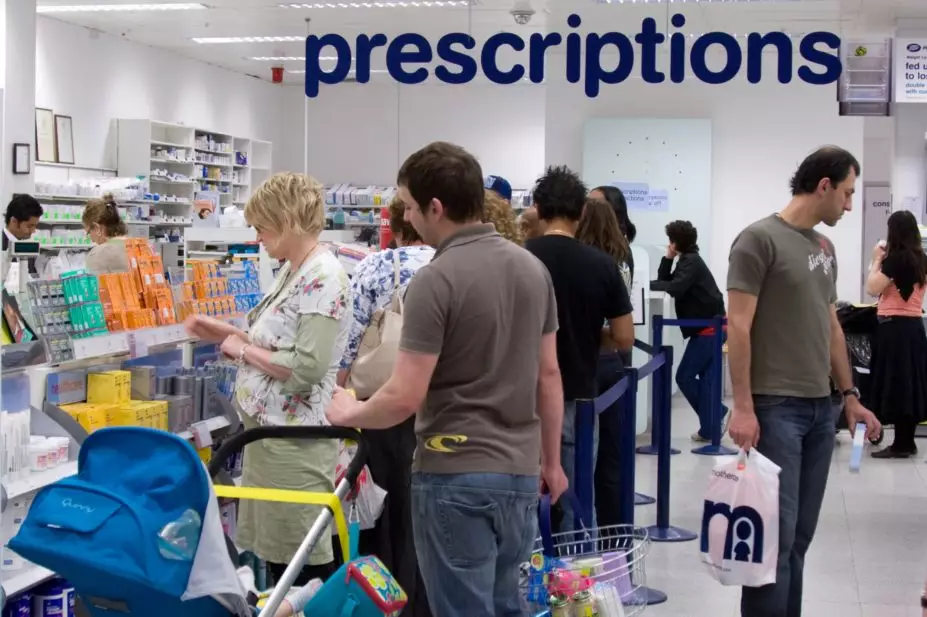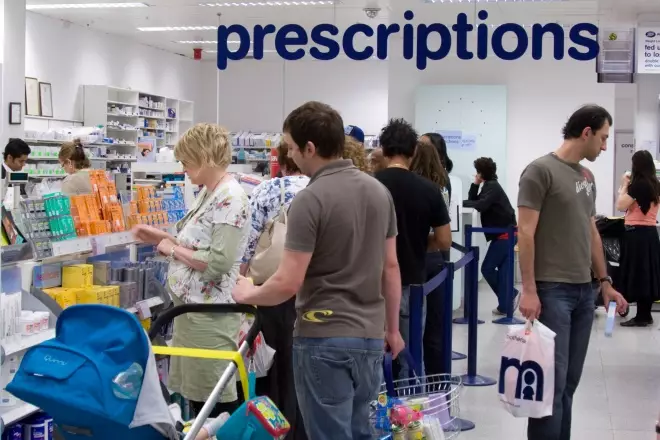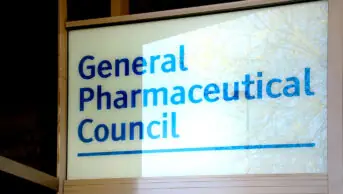
British Retail Photography / Alamy Stock Photo
Open access article
The Royal Pharmaceutical Society has made this article free to access in order to help healthcare professionals stay informed about an issue of national importance.
To learn more about coronavirus, please visit: https://www.rpharms.com/resources/pharmacy-guides/wuhan-novel-coronavirus

Source: British Retail Photography / Alamy Stock Photo
Retired pharmacists and those who opted not to revalidate could be re-registered by the General Pharmaceutical Council if the coronavirus outbreak leads to a national state of emergency
The General Pharmaceutical Council (GPhC) has drawn up plans to temporarily re-register pharmacists and pharmacy technicians if the government launches a state of emergency in relation to COVID-19.
In its council papers, published on 9 March 2020, the GPhC set out a two-phased plan which could see up to 5,800 additional pharmacy professionals added to the register “if an emergency is declared by the secretary of state”.
In the first phase, former pharmacist and pharmacy technician registrants “who were voluntarily removed and whose fitness to practise is not impaired” would be temporarily re-registered.
Under the second phase, the list would be extended to include former registrants “who were recently removed for non-renewal of registration”.
The GPhC said it would “set out in each phase the relevant number of years that a person has been off the register to ensure clarity and will consider whether the number of years may need to be increased in further phases, depending on the scale of the emergency”.
“As an illustration of the potential numbers, phase one of our proposed approach would mean approximately 2,700 pharmacists and 1,300 pharmacy technicians would become eligible to practise if recent experience was defined as two years,” the papers said.
“Phase two would add a further 900 pharmacists and 900 pharmacy technicians using the same timeframe.”
If additional staff are required, the GPhC papers said it may be necessary to register “additional categories of people … who have demonstrated many, but not all, of the required knowledge and skills or who have less recent experience of pharmacy practice”.
The regulator highlighted that it is not able to require people to return to practise, adding that “people would be doing so on a voluntary basis to help their community, taking account of their own experience and health”.
The GPhC is expected to further discuss the policy at its Council meeting on 12 March 2020.
The measures come as the pharmacy sector continues to plan for a worsening outbreak of COVID-19.
On 6 March 2020, the government announced the cancellation of the 2019/2020 clinical audit on antimicrobial stewardship to allow the profession to focus “on the actions set out in national communications regarding COVID-19”.
Mike Hewitson, a pharmacist at Beaminster Pharmacy in Dorset, said he had called for the cancellation of the audit, which he described as “sensible in light of current circumstances”.
He told The Pharmaceutical Journal that he “would probably be looking for them to think about what else we could stop doing for the moment,” such as the routine reporting of health promotion campaigns or the annual information security toolkit.
“We are in a position where pharmacies are pretty stretched anyway, with the day-to-day workload, and when you add in all of the diktats that keep coming out on coronavirus, it is adding significant workload in terms of the leadership bandwidth in organisations,” he said.
Hewitson said his pharmacy was also seeing patients asking for additional prescriptions so that they would have a continued drug supply while self-isolating.
The pharmacy has also had to put measures in place to protect supplies of the anti-malarial chloroquine following “anecdotal reports that it might be effective against this virus”.
“We’ve already had patients trying to buy it. We’ve had to refuse a number of sales because it’s not recommended,” he said.
The government banned the parallel export of chloroquine, as well as antiretroviral lopinavir/ritonavir, on 26 February 2020 as they were being tested as possible treatments for coronavirus.
Hemant Patel, secretary of the North East London Local Pharmaceutical Committee, agreed that the cancellation was a positive move as community pharmacy was already “working under the cosh”.
“Any additional work which requires conversation with patients is going to add more pressure to the workload in pharmacy, so I think it is an appropriate thing to do,” he said.
Patel also reported an increase in the number of patient interactions since the beginning of the coronavirus outbreak, with the ‘worried well’ “taking up a lot of time and needing a lot of assurance to help them cope with the situation”.
“If it really hits the peak, staff levels may be further reduced in pharmacies and workload will increase at the same time,” he said.
His comments come after the Pharmaceutical Services Negotiating Committee told The Pharmaceutical Journal that pharmacists could be “redeployed” to areas with low-pharmacist coverage following an outbreak of coronavirus.


